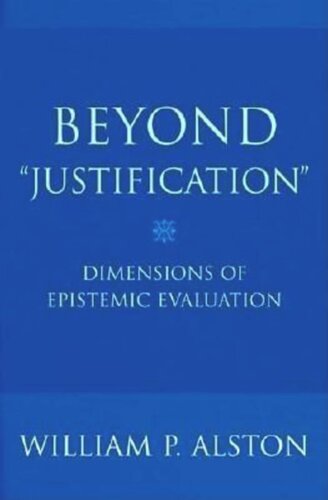

Most ebook files are in PDF format, so you can easily read them using various software such as Foxit Reader or directly on the Google Chrome browser.
Some ebook files are released by publishers in other formats such as .awz, .mobi, .epub, .fb2, etc. You may need to install specific software to read these formats on mobile/PC, such as Calibre.
Please read the tutorial at this link: https://ebookbell.com/faq
We offer FREE conversion to the popular formats you request; however, this may take some time. Therefore, right after payment, please email us, and we will try to provide the service as quickly as possible.
For some exceptional file formats or broken links (if any), please refrain from opening any disputes. Instead, email us first, and we will try to assist within a maximum of 6 hours.
EbookBell Team

0.0
0 reviewsMuch of the writing in Anglo-American epistemology in the twentieth century focused on the conditions for beliefs being "justified." In a book that seeks to shift the ground of debate within theory of knowledge, William P. Alston finds that the century-long search for a correct account of the nature and conditions of epistemic justification misses the point. Alston calls for that search to be suspended and for talk of epistemic justification to cease. He proposes instead an approach to the epistemology of belief that focuses on the evaluation of various "epistemic desiderata" that may be satisfied by beliefs.Alston finds that features of belief that are desirable for the goals of cognition include having an adequate basis, being formed in a reliable way, and coherence within bodies of belief. In Alston's view, a belief's being based on an adequate ground and its being formed in a reliable way, though often treated as competing accounts of justification, are virtually identical. Beyond "Justification" also contains discussions of fundamental questions about the epistemic status of principles and beliefs and appropriate responses to various kinds of skepticism.